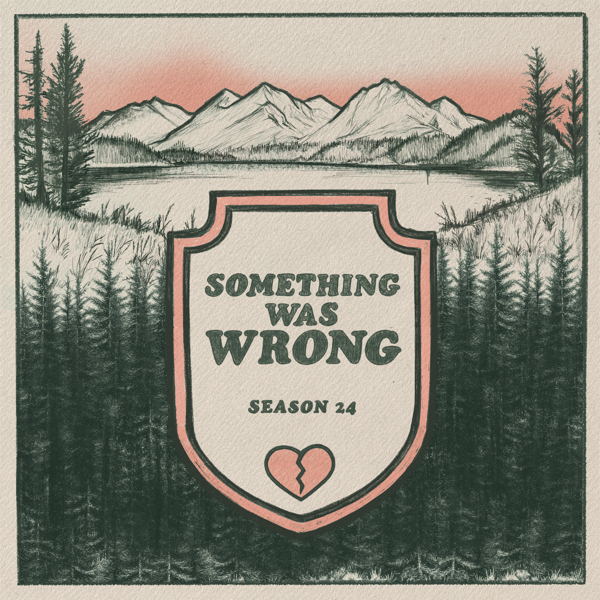S2 Ep7: Somebody I Love is So Sick
Something Was Wrong
Broken Cycle Media
4.1 • 24.6K Ratings
🗓️ 26 September 2019
⏱️ 33 minutes
🧾️ Download transcript
Summary
Transcript
Click on a timestamp to play from that location
| 0:00.0 | This podcast is intended for mature audiences and could be triggering to some. Please use discretion when listening. |
| 0:08.2 | On a personal note, sadly, this past Saturday, my father-in-law, Papa, passed away suddenly. He was the only |
| 0:16.0 | real dad I've ever had, and his impact, both on myself and those who I love dearly, will go on forever. |
| 0:24.8 | My father-in-law was a dog trainer, and yesterday my favorite dog of his Maya passed away and |
| 0:29.8 | went to go be with Papa. I want to dedicate this episode to both of them. They always made me feel |
| 0:35.5 | loved, safe, and cared for. Thank you. In an article |
| 0:40.4 | written by John Snook, executive director of the Treatment Advocacy Center, that he wrote for |
| 0:46.0 | Variety in Rolling Stone for a special series entitled American Injustice, which is linked in the show |
| 0:52.2 | notes, of course. He writes, an estimated 8.3 million linked in the show notes, of course. He writes, |
| 0:54.9 | An estimated 8.3 million adults in the United States have a severe mental illness. |
| 1:01.5 | At any given time, 3.9 million go untreated. |
| 1:05.2 | With medication and other support services, those with severe mental illness are no more |
| 1:10.5 | dangerous than anyone else, |
| 1:12.4 | capable of leading happy and productive lives. Without treatment, their prospects worsen. Yet the |
| 1:18.6 | odds are stacked against these individuals. Our health care system actively denies them care, |
| 1:24.1 | and we criminalize the symptoms of their diseases. When someone has a heart attack, |
| 1:29.2 | an ambulance takes them to an emergency room. When someone is in the depths of psychosis, however, |
| 1:34.5 | police are called and frequently cart that person off to jail. Without treatment, those with |
| 1:39.5 | severe mental illness experience a host of negative consequences. Many take their own lives. Others face |
| 1:46.2 | a shortened lifespan due to much increased risk of other chronic health conditions. Ultimately, |
| 1:52.6 | those with severe mental illness die on average 25 years earlier than their peers. Others are |
| 1:59.3 | lost to the streets. Conservative estimates suggest that |
... |
Please login to see the full transcript.
Disclaimer: The podcast and artwork embedded on this page are from Broken Cycle Media, and are the property of its owner and not affiliated with or endorsed by Tapesearch.
Generated transcripts are the property of Broken Cycle Media and are distributed freely under the Fair Use doctrine. Transcripts generated by Tapesearch are not guaranteed to be accurate.
Copyright © Tapesearch 2025.

